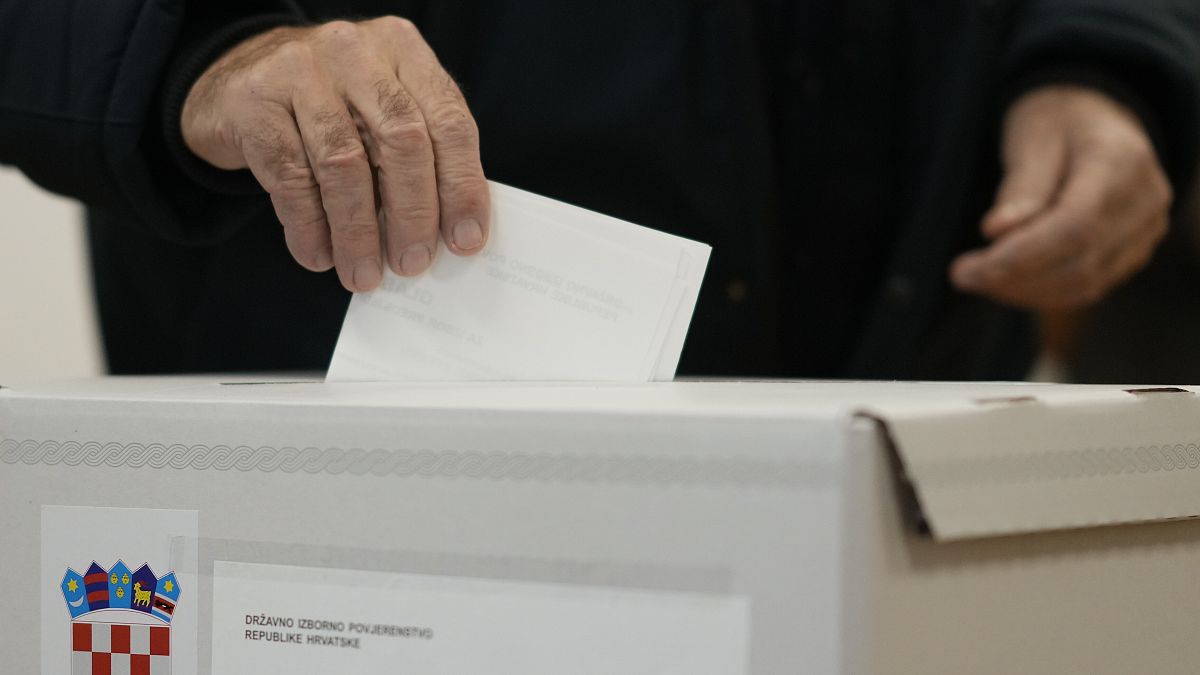Pre-election polling suggest the left-leaning incumbent president Zoran Milanovic, who is an outspoken critic of Western military support for Ukraine, will win.
Polls have opened across Croatia in the country’s second round presidential election which sees incumbent Zoran Milanovic running against Dragan Primorac, the candidate backed by the prime minister and his government.
In the first round, held on 29 December, Milanovic won 49.7% of the vote against seven other candidates, just shy of half of the ballots needed to secure an outright victory.
He was a long-time leader of the Social Democrats and spent most of his career in opposition. Milanovic was then the country’s prime minister from late 2011 to early 2016.
Populist in style, he’s been a fierce critic of current Prime Minister Andrej Plenkovic who leads the Croatian Democratic Union (HDZ) party and near continuous clashes and bickering between the two has become a hallmark of Croatia’s political landscape.
After dethroning HDZ’s president Kolinda Grabar-Kitarovic five years ago, Milanovic has steadily shifted towards the right side of the political spectrum.
Nevertheless, he is widely seen as the only counterweight to HDZ and its rule.
In April this year, he tried to run in the parliamentary election as the prime minister candidate of the Social Democrats, in an unprecedented move which saw a sitting head of state attempt to get elected to parliament.
Although he promised to vacate his seat if successful, the constitutional court barred him from actively campaigning during the election.
The Social Democrats then failed to form a majority in parliament, so Milanovic remained head of state.
From paediatrics to politics
Primorac was a paediatrician and a university professor before he entered politics.
Primorac has not been a presence in Croatia’s political life since 2009 when, as the minister of science in a HDZ cabinet, he tried to mount an independent presidential campaign.
During this year’s campaign, Primorac sought to portray himself as a non-conflict person and a unifier and also a pro-Western oriented figure, positioning himself in contrast to Milanovic.
Though the Croatian presidency is largely ceremonial, an elected president holds political authority and acts as the supreme commander of the military. He also has some say in foreign policy.
Milanovic has repeatedly said that Croatia should stay away from global disputes, even though it is a member of both NATO and the EU.
He has blocked Croatia’s participation in a NATO-led training mission in Germany and has spent several months trying to convince voters that he is preventing Croatian soldiers from being sent to the battlefield in Ukraine, even though this was never proposed.
Milanovic had also tried to get opposition MPs to block Croatia’s ratification of NATO enlargement, a formal requirement that was needed to admit Sweden and Finland into the alliance.
Milanovic’s main rival Primorac has repeatedly stated that Croatia’s place is in the West, but his presidency bid has been marred by a high-level corruption case that landed Croatia’s health minister in prison in November and which featured prominently in pre-election debates.
In the first round in December, Primorac won 19.6% of the vote – more than other candidates and enough to reach the run-off, but still regarded as a poor performance by a candidate backed by the ruling party which also boasts the largest membership in the country.
Croatia has around 3.5 million eligible voters. The turnout in the first round was 46%, the lowest of any presidential election in 15 years.
Checkout latest world news below links :
World News || Latest News || U.S. News
The post Polls open in Croatia’s second round presidential election appeared first on WorldNewsEra.

